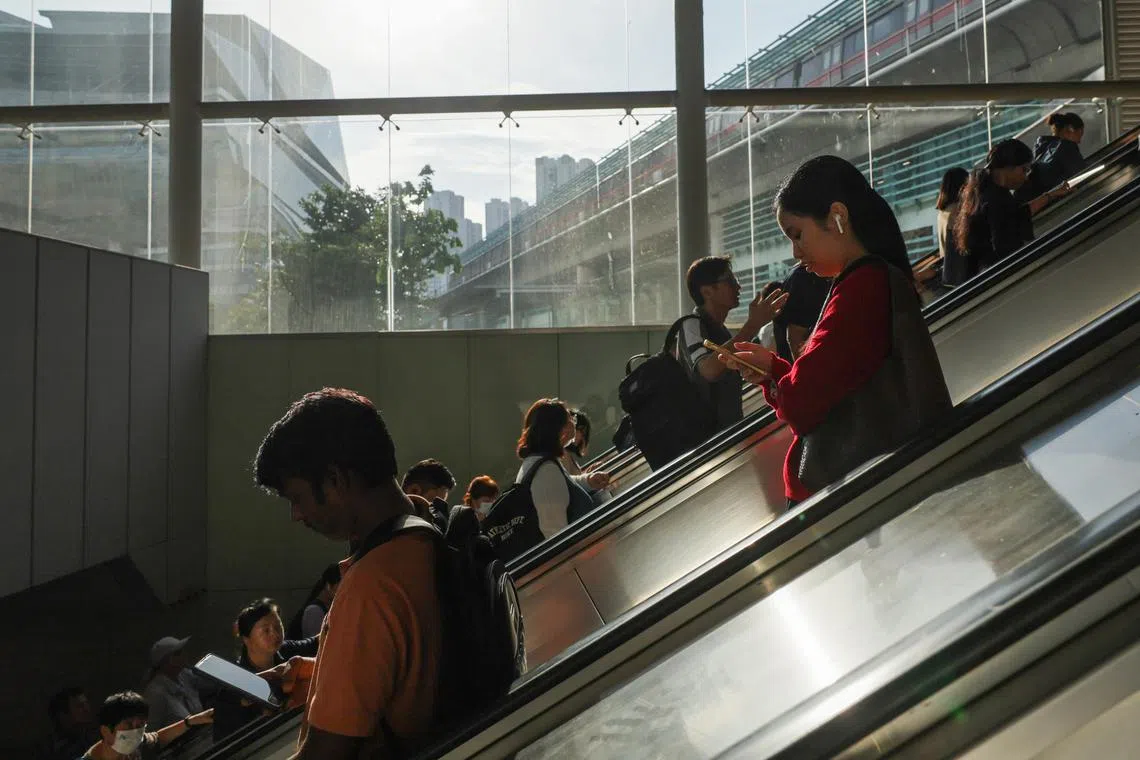Is consuming mental health content on social media good or bad?
The TL;DR: Mental health content and advice on social media can normalise conversations on the issue and encourage people to seek help for their condition. However, such user-generated content could spread misinformation and lead to inaccurate self-diagnosis, said experts.
Sign up now: Get ST's newsletters delivered to your inbox

Information about mental health found online may not be provided by trained professionals and could turn out instead to be misinformation.
ST PHOTO: GIN TAY
Follow topic:
Consuming content and paying heed to advice about mental health on social media can be a double-edged sword, said psychiatrists and psychologists.
On the one hand, experts say that social media has normalised conversations on mental health, so younger people feel less ashamed to talk about their problems and are aware about this topic.
Yet, information about mental health found online may not be provided by trained professionals and could turn out instead to be misinformation.
Dr Victor Kwok, senior consultant psychiatrist at Private Space Medical, said: “Mental health is discussed so openly that the stigma has significantly decreased from a decade ago.”
Ms Ng Jing Xuan, a clinical psychologist and the founder of Open Journey Psychology Clinic, said: “Young people share personal stories on social media because they feel a sense of safety behind their devices and trust content creators they relate to.”
As a result, social media allows some users to recognise their symptoms and take the initiative to consult professionals or doctors for a diagnosis.
But if professionals and doctors are not consulted, there are dangers, experts warned.
Dr Kwok said: “While content creators share genuine advice online from an altruistic angle, social media can be a jungle and the advice can sometimes be unscientific and carry misconceptions.”
As an example, he cited anti-psychiatry movements that demonise the use of antidepressants or medications for attention-deficit hyperactivity disorder (ADHD), and make absurd claims about their side effects.
Self-diagnosis is also very common among young people, experts said. While some of their suspicions may be accurate, some might end up misdiagnosing themselves.
Ms Ng said that social media can exacerbate existing mental health issues.
For example, if someone has obsessive-compulsive disorder (OCD), he may seek reassurance or search up information on social media which can inadvertently expose him to messages that reinforce his unhealthy thoughts and behaviours, hindering his recovery journey, she added.
Some may delay seeking professional help, thinking that social media content is helping them, which might worsen their psychological states, said Ms Ng.
Experts said users should check the credibility of social media posts before taking any advice.
Dr Kwok said one can always fact-check information by cross-referencing it against reputable sources. People can look for content from established clinics or hospital websites like HealthXchange and treatment centres such as Mayo Clinic or Harvard Medical School – these are excellent resources for accurate mental health information, he said.
Dr Adrian Loh, senior consultant psychiatrist at Promises Healthcare, said people can review social media posts with doctors or counsellors, who can help assess the accuracy and reliability of the content.
He further advised that people can seek professional help if they relate to symptoms they read about online, as social media content can be rather generalised.
They could consult a licensed professional through school or services like Centre of Excellence for Youth Mental Health, a mental health wellness service by the Institute of Mental Health for young people.
Helplines
Mental well-being
Institute of Mental Health’s Mental Health Helpline: 6389-2222 (24 hours)
Samaritans of Singapore: 1-767 (24 hours) / 9151-1767 (24-hour CareText via WhatsApp)
Singapore Association for Mental Health: 1800-283-7019
Silver Ribbon Singapore: 6386-1928
Tinkle Friend: 1800-274-4788
Chat, Centre of Excellence for Youth Mental Health: 6493-6500/1
Women’s Helpline (Aware): 1800-777-5555 (weekdays, 10am to 6pm)
Counselling
Touchline (Counselling): 1800-377-2252
Touch Care Line (for caregivers): 6804-6555
Care Corner Counselling Centre: 6353-1180
Counselling and Care Centre: 6536-6366
We Care Community Services: 3165-8017
Online resources
carey.carecorner.org.sg
(for those aged 13 to 25)limitless.sg/talk
(for those aged 12 to 25)

